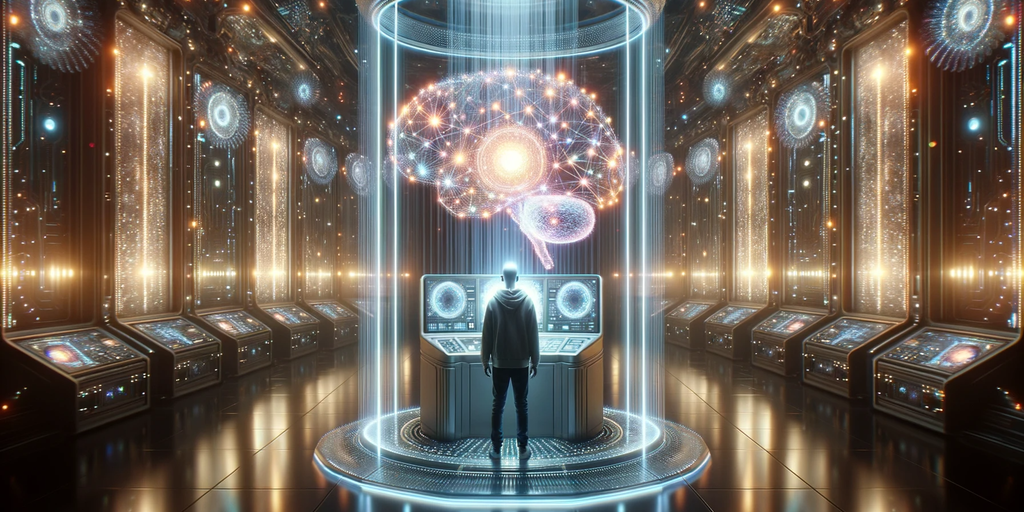Meta has unveiled a groundbreaking AI system that can almost instantaneously decode visual representations in the brain.
Meta’s AI system captures thousands of brain activity measurements per second and then reconstructs how images are perceived and processed in our minds, according to a new research paper. “Overall, these results provide an important step towards the decoding—in real time—of the visual processes continuously unfolding within the human brain,” the report said.
The technique leverages magnetoencephalography (MEG) to provide a real-time visual representation of thoughts.
MEG is a non-invasive neuroimaging technique that measures the magnetic fields produced by neuronal activity in the brain. By capturing these magnetic signals, MEG provides a window into brain function, allowing researchers to study and map brain activity with high temporal resolution.
Image: Meta—’
The AI system consists of three main components:
Image Encoder: This component creates a set of representations of an image, independent of the brain. It essentially breaks down the image into a format that the AI can understand and process.
Brain Encoder: This part aligns MEG signals to the image embeddings created by the Image Encoder. It acts as a bridge, connecting the brain’s activity with the image’s representation.
Image Decoder: The final component generates a plausible image based on the brain representations. It takes the processed information and reconstructs an image that mirrors the original thought.
Meta’s latest innovation isn’t the only recent advancement in the realm of mind-reading AI. As reported by Decrypt, a recent study led by the University of California at Berkeley showcased the ability of AI to recreate music by scanning brain activity. In that experiment, participants thought about Pink Floyd’s “Another Brick in the Wall,” and the AI was able to generate audio resembling the song using only data from the brain.
Furthermore, advancements in AI and neurotechnology have led to life-changing applications for individuals with physical disabilities. A recent report highlighted a medical team’s success in implanting microchips in a quadriplegic man’s brain. Using AI, they were able to “relink” his brain to his body and spinal cord, restoring sensation and movement. Such breakthroughs hint at the transformative potential of AI in healthcare and rehabilitation.
 Image: Meta
Image: Meta
The potential applications of such technology are vast, from enhancing virtual reality experiences to potentially aiding those who have lost their ability to speak due to brain injuries.
It’s essential to approach such advancements with a balanced perspective, however. The Meta researchers noted that while the MEG decoder is swift, it’s not always precise in image generation. The images it produces represent only higher-level characteristics of the perceived image, such as object categories, but might falter in detailing specifics.
The implications of this technology are profound. Beyond its immediate applications, understanding the foundations of human intelligence and developing AI systems that think like us could redefine our relationship with technology.
“The rapid advances of this technology raise several ethical considerations, and most notably, the necessity to preserve mental privacy,” the researchers warned. Ultimately, while AI can now paint our thoughts, it’s up to us to ensure the canvas remains our own.
Stay on top of crypto news, get daily updates in your inbox.
Source: https://decrypt.co/202258/meta-has-an-ai-that-can-read-your-mind-and-draw-your-thoughts
Image: Meta



